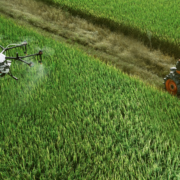The Future of Sustainable Agriculture: How Technology is Revolutionizing Farming
Sustainable agriculture is crucial for feeding the growing global population while preserving the environment. This article explores how technological advancements are revolutionizing farming and helping achieve sustainability goals.
The Need for Sustainable Agriculture
As the global population continues to rise, the demand for food is increasing. Traditional farming practices often harm the environment, leading to deforestation, soil degradation, and water scarcity. Sustainable agriculture aims to address these challenges by promoting environmentally friendly farming practices.
Technologies Driving Change
- Precision Agriculture: Using GPS, drones, and IoT devices, farmers can monitor and manage crops more efficiently, reducing waste and increasing yields.
- Vertical Farming: Growing crops in vertically stacked layers can save space and resources, making it ideal for urban areas.
- Biotechnology: Advances in biotechnology, such as genetically modified organisms (GMOs) and lab-grown meat, are helping to reduce the environmental impact of agriculture.
Benefits for Farmers and the Environment
Sustainable agriculture practices not only help protect the environment but also provide economic benefits to farmers. Reduced use of chemicals and water leads to lower costs and healthier crops, while also preserving biodiversity.
Challenges and the Way Forward
While technology offers solutions, there are challenges to widespread adoption, including high costs and a lack of infrastructure. However, with government support and investment, these technologies can be scaled to benefit more farmers.
The future of agriculture lies in sustainability, and technology is key to achieving it. By embracing innovative farming practices, we can ensure food security while protecting our planet for future generations.



